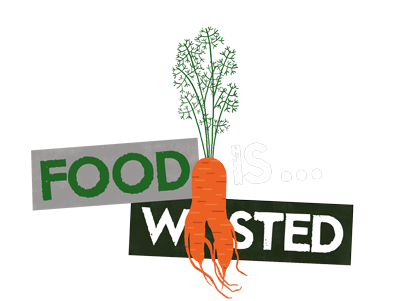Oftentimes information presented as facts is actually just statistics, and those statistics, at least when it comes to food waste, are really just a best-guess based on available data. And that data is more often than not limited in scope, and/or out of date. So when you read or hear statistics being presented to you as facts, please consider them as most likely underestimating the reality of the situation.
Why is the issue of food waste so important?
Food is critical to our survival, and without a sustainable food system our socieities will collapse – it’s happened before, and the way we are headed is likely to happen again. Food waste, especially the quantities being produced currently – at least a third of what we produce globally – is a symptom of a flawed system.
With our food being produced by an industrialised, globalised system, the growing and harvesting of food is not what it once was. There is a huge amount of energy, petroleum-based inputs, and other resources used to produce the food we end up throwing away. As you move down the supply chain – from farm to fork, more resources are embedded into the food, as it’s packaged and transported and refrigerated.
So no matter where along the food chain the food is getting wasted, we are not just wasting the food itself, but all the resources that have been used to produce it. That means at least a third of all the chemical fertilisers and pesticides, the fuel, labour, water and electricity is wasted as well.
Then there’s the deforestation, land clearance, water pollution, soil degradation, biodiversity loss, that occurs as a consequence of the industrial system, and the methane produced by food rotting in landfills – a greenhouse gas over 10 times more potent than CO2 – that contributes to climate change.
So, food waste affects all the critical issues of our time in a big way.
This means that if we impact positively on the quantities of food waste being produced, we will impact positively on all these issues.
What can I do to help reduce the amount of edible food needlessly going to waste?
One of the best things we can do in terms of our contribution to food waste, and our impact as a whole, is to buy and consume less. If we only buy what we need, when we need it, we are less likely to waste it. This flies in the face of contemporary shopping habits – such as doing a big weekly shop, that have been nurtured by the supermarkets and advertisers over the past 30 years.
It has resulted in at least 5 million tonnes of avoidable food being wasted by households in the UK annually – equivalent to £15 billion, and equivalent to 22 million tonnes of CO2. While many statistics will paint a picture that has the household as the main villain when it comes to avoidable food waste, this is based on incomplete data – it excludes what is being created at a farm-level.
By not buying as much, and if we buy as much as possible from small, independent suppliers, or even better, directly from the producers, then we are minimising our support for the supermarkets, and the supply side of the industrial food system.
Why is this of significance? The supermarkets may strive to minimise the waste they produce in-store – it is of course of financial benefit to reduce waste, and there has been pressure put on them to make what might otherwise be thrown out available to local charities, but this does not address the waste they are causing at a farm level. Through enforcing absurd cosmetic standards and last-minute order cancellations and modifications, they cause a criminal amount of avoidable food waste to occur on farms across the globe.
Beyond reducing out support for supermarkets, there are a range of other things we can do to minimise our own waste within a household environment – much of it linked to traditional food culture.
But we mustn’t think that assuming personal responsibility for our own waste alone is going to change such a deeply flawed, broken food system – not in a short enough timeframe to reduce the impact on climate change, soil degradation, deforestation and the like. For that we much seek to support and engage with organisations, such as those in the Food Waste Resources page, that are working to reduce the amount of edible food needlessly going to waste. We must also engage with our local politicians to get the issue of food waste pushed up the agenda.
How does food waste contribute to climate change?
Coming soon…
Is most food waste produced in our homes?
Coming soon…
Is a circular economic approach the solution to addressing the issue of food waste?
Coming soon…
What happens to my food waste once my compost bin is collected?
Coming soon…
